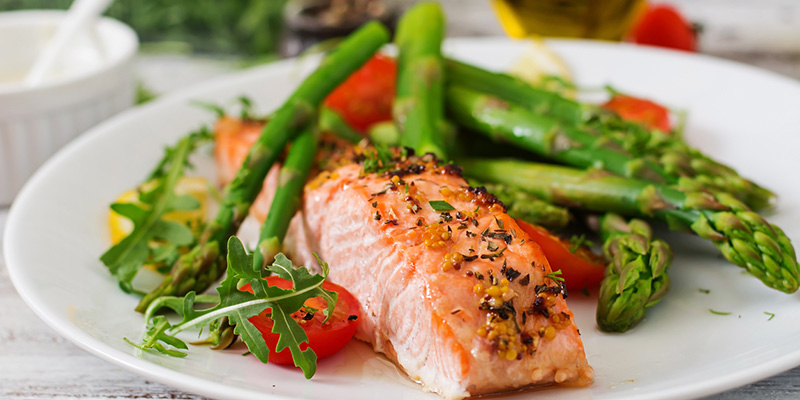What Foods Are Best for Rosacea Sufferers?
If you are one of the 14 million Americans living with rosacea, you may be struggling to find relief from seemingly sporadic flare-ups of your symptoms (American Academy of Dermatology). What you may not know, however, is that your skin is intimately affected by the foods and drinks that you do or do not consume. As a result, paying attention to your diet is one way people with rosacea can help to control flare-ups of redness and flushing and get back to enjoying their day-to-day lives. Take a look at some of the most common foods that trigger rosacea symptoms, as well as a few excellent food choices that could help to calm and soothe your skin.
What Is Rosacea?
First, it is important to understand that rosacea is a chronic inflammatory skin condition with symptoms–which include redness, facial flushing, and sometimes small pustules or bumps–that tend to occur in flares. Because of this, learning more about what can cause these flare-ups should be part of any effective treatment plan for rosacea. Additionally, although the most obvious symptoms of rosacea occur on the skin, this condition has also been linked with a number of underlying health concerns. These include an increased risk for cardiovascular disease, diabetes, and gastrointestinal problems (National Rosacea Society). Therefore, even if you feel that you are able to manage your skin symptoms on your own by understanding and avoiding their triggers, you should still consult a physician for a more comprehensive approach to treatment.
Foods and Drinks to Avoid
One of the steps you can take to help get your rosacea flare-ups under control is to eliminate certain foods from your diet. Keep in mind that not everyone reacts in the same way to each of these triggers, but many people with rosacea can benefit from avoiding:
- Alcohol
- Caffeine
- Hot beverages like coffee, tea, and hot chocolate
- Spicy foods
- Citrus fruits
- Soy
- Vinegar (National Rosacea Society)
There is also evidence that suggests a specific group of vegetables called nightshades may increase inflammation, which could, in turn, contribute to redness and flushing. These vegetables, which include eggplants, tomatoes, and potatoes, produce alkaloids, which may trigger your body’s inflammatory response system (Natural News). If you’re unsure about whether or not eating nightshade vegetables negatively affects your skin, try eliminating them from your diet for several weeks to see if you notice an improvement in your symptoms.
Foods to Pile on Your Plate
Just as certain foods can be detrimental to your skin’s health and appearance when struggling to manage rosacea, others can help to calm and clear your skin by reducing inflammation and providing a cooling sensation. Some of the best foods to pile onto your plate include:
- Salmon
- Flaxseed oil and others with linoleic acid
- Cucumber
- Chamomile
- Aloe juice
- Turmeric (Livestrong)
Keep in mind that it can take several days or even weeks for changes in your diet to begin to show up on your skin. Even if you’re not seeing immediate results, stick with these changes to see a lasting improvement in your skin’s condition.
More Resources
If you’d like to learn more about the latest news and treatment options for rosacea, you can take a look at my past blogs on the newest treatment approaches, the psychological effects of rosacea, and warm weather tips for dealing with rosacea. You can also follow us on Facebook and share your questions or comments on our page. Finally, if you don’t already have a dermatologist with whom you work to help keep your rosacea under control, find an STS-approved physician partner in your area. He or she can not only help to accurately diagnose and treat your redness and flushing, but can also help you to design a custom-tailored skincare routine that won’t cause additional flare-ups or irritation.
Dr. Leslie Baumann, M.D. and her team at Baumann Cosmetic Dermatology believe in proof, not promises. World-recognized for both cosmetic and general dermatology, our treatment strategies rely exclusively on evidence-based, scientifically verified products and procedures that promote skin health and a natural appearance. We combine effective medical procedures with individualized instruction on proper skincare, nutrition, supplementation and lifestyle in order to maximize the health of the skin and body as a whole while minimizing the effects of aging. For more, visit Dr. Baumann’s blog for daily updates Monday through Friday, or inquire about an appointment through Derm.net.



